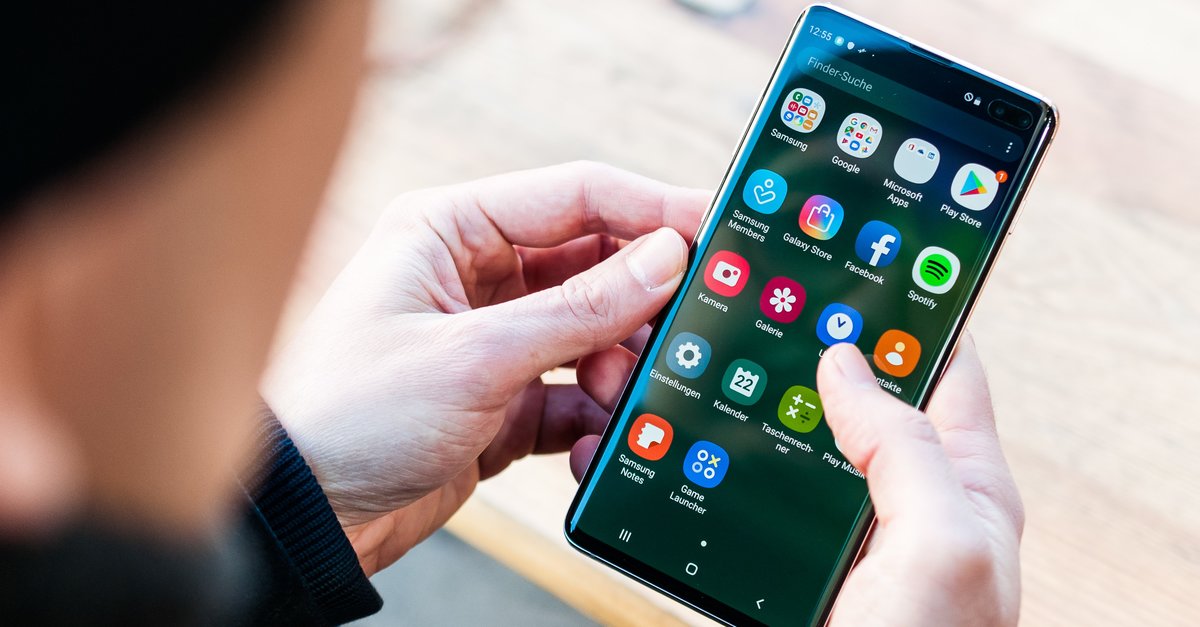With these banks, there are high interest rates on call money and time deposits
A notice: We have used commission links in this article and marked them with “*”. If an order is placed via these links, t3n.de receives a commission.
For many years, overnight and fixed-term deposit offers were provided with minimal interest – often there was not even this, but customers still had to fear being asked to pay for their deposits. In the meantime, the situation has changed again, also due to rising inflation and higher interest rates. One more reason why, as part of the New Finance theme week, we want to take a closer look at overnight deposits and fixed-term deposits, which are interesting in and of themselves because they are relatively safe and predictable.
In recent months, numerous banks – especially those from the second tier, which are less well known to customers – have taken the opportunity and, with a little marketing effort, increased their interest rate offers. These also include well-known banks such as ING, which even made it into the daily press: there are now three percent there for the first six months for new customers and for new money flowing in from existing customers. A good move for customers and a challenge to many established banks that are still paying meager interest rates despite high single-digit inflation.
But the situation is improving in the entire industry and there are now a number of other banks that are again paying comparatively attractive interest rates for call money and fixed-term deposits and are luring three percent and more. But are they really that attractive in view of the rising inflation rate and should one tie oneself to a longer contract (in the context of a fixed deposit)? From our topic special “New Finance”.
Contents
- 1 Why are interest rates attractive again?
- 2 Are 2 to 3 percent interest a reason to breathe a sigh of relief?
- 3 How much money should you have in the money market account?
- 4 Where are there still attractive interest rates on call money?
- 5 And what about fixed-term deposit offers?
- 6 What is it about the investment platforms?
- 7 Is the money really safe?
- 8 How does the tax treatment work?
- 9 What else do you have to consider when choosing a fixed-term deposit offer?
- 10 Does regular account switching worsen the Schufa score?
Why are interest rates attractive again?
On the one hand, this has something to do with the key interest rate, which has risen several times, and also with growing inflation. Although this is falling again after a record high of around ten percent last year, it is currently still 7.9 percent for the year as a whole. It is expected to remain in the high single digits, so savings left in the checking account “just like that” will depreciate significantly over time.
Some banks are reacting to this with comparatively attractive interest rates. But the up to a good three percent (see below) cannot hide the fact that savings lose value in the face of inflation. Savers should therefore only have the famous nest egg in their call money account and, if necessary, collect higher income or profits elsewhere for other savings.
But always remember: return and risk go hand in hand – and a call money or fixed-term deposit account is therefore a comparatively safe matter. Nobody can predict with certainty how the stock markets will develop.
That depends heavily on your own circumstances, lifestyle and marital status. As a rule of thumb, you should be able to get by with the money in the call money account for three to six months if, for example, you lose your job, your car goes on strike from one day to the next, or you have higher additional costs for other reasons. Anyone who has to finance a family or is self-employed has different requirements than a frugal single person.
But it is also important in this case that you can get your money at any time. Call money with the lower interest rate is therefore preferable to long-term fixed-term deposits. With fixed-term deposits, a distinction must be made as to whether this is generally fixed or whether you can get in early in an emergency – with a loss of interest.
In the past, car banks have always been a good way to get above-average interest rates. The Volkswagen Bank For example, it is currently 3.1 percent, but only for the first six months, after that it is the applicable interest rate, which would currently be 0.65 percent. There are still three percent at the INGthe consor bank as well as the Advanzia (each for six months). Trade Republic’s offer is still attractive in the long term (as of April 24, 2023) and certainly also includes a bit of a marketing budget, since the company’s two percent interest rate only pays off indirectly, for example with money that you put in a deposit account and local investment products shifted. The offer from the competitor Scalable Capital is also interesting, although it requires a paid Prime Plus membership (but pays the high interest rate of up to 100,000 euros).
It is also interesting that the C24 bench, which belongs to the Check-24 Group, now pays two percent interest on overnight money on all checking accounts, including the fee-free account, and also pays commission for card payments. On the other hand, you can achieve permanent results with the Lease Plan Bank, a leasing and fleet financier, at least 2.3 percent and 2.6 percent at Akbank, a subsidiary of a Turkish bank based near Frankfurt. However, the last few months have shown that interest rates are trending upwards – good news in general, but also a drop in the ocean given the inflation rate.
On the other hand, some fixed-term deposit offers are even more attractive, although the money here is of course tied up until the end of the term. With regard to the loss of purchasing power, this should be considered for longer terms and higher amounts. But you can, for example, invest part of the pension portion of a securities account.
For example, these are attractive Credit Agricole (CA Consumer Finance) from France with 3.5 percent for 24 months, whereas 3.6 percent for 36 months does not bring significantly more for a significantly longer commitment. However, it can be worth it if you want to be sure that you will get similarly good interest in two years. The Klarna Fixed Deposit Plus still brings 3.21 percent for twelve months, whereas here, too, the 24 or 36 months bring little more interest. All in all, a sign that it is not clear whether interest rates will continue to rise. A special feature of the payment service provider Klarna*: This offers different interest rates, depending on whether the transaction takes place in the classic way or via Klarna’s own app. There is slightly more interest for the fixed-term deposit account named Plus, which is managed exclusively via the app and includes a mandatory current account.
Otherwise, the interest platforms Weltsparen or DB Zinsmarkt are on board with some other offers, where you can also get information.
In addition to the offers available directly from the banks, there are also savings platforms such as world savings*, interest rate pilot* or Deutsche Bank interest rate market. Some of these also offer attractive offers, but these fluctuate more frequently – especially with regard to the level of the negotiated interest rate. Here you can search specifically with your term and complete the transaction via the platform. However, you should consider which countries – or what level of security – you want to rely on.
It is recommended here to always rely on the best security or to be aware of the otherwise existing (small but existing) risks. It should also be noted here that users are currently reporting that the response times of these portals are increasing due to the new attractiveness of overnight and fixed-term deposits. So you should bring some patience with you and take into account that the activation and verification can also take some time.
Basically, you should make sure that the bank with which you invest your call money or time deposit either belongs to the deposit protection fund of the German banks or is at least covered by a comparable fund from another European country (preferably EU/EEA countries). The respective countries are rated differently, with the rating agencies rating Germany and Austria as well as France, Luxembourg, the Netherlands and the Scandinavian countries as good.
Editor’s Recommendations
Incidentally, it can also make sense to save via a portal such as Weltsparen or Deutsche Bank Zinsmarkt, since money invested abroad can then be processed through the platform if there are problems with the respective bank. Even if they are not liable in an emergency, they still have a strong interest in investors not being left out in the rain.
Basically, you have to pay withholding tax on all interest. This is 25 percent, possibly plus church tax and, in very rare cases, a solidarity surcharge. The handling is regulated differently. While most banks do this for you right away, with other banks you have to do it yourself and state it in your tax return so that it is paid. However, you should not “forget” it, as the banks report the corresponding amounts to the German tax authorities. On the other hand, it is easier for you if the bank takes care of the taxation for you and provides you with a corresponding form at the end of the year.
While some banks pay the interest on fixed-term deposits annually, others do so at the end of the term, which may be several years. This should be clarified in advance, as should the question of what will happen to the money due. In many cases, it is reinvested (at the applicable interest rate) if the investment is not terminated in good time.
Usually not with the classic money market and time deposit accounts, because these are managed exclusively on a credit basis. This can only become a problem with offers for which an additional credit card is opened, especially if the closure takes place shortly afterwards. In this respect, however, there is nothing wrong with having several accounts, nor is it problematic to engage in interest hopping and take new customer offers (as far as possible) with you.



